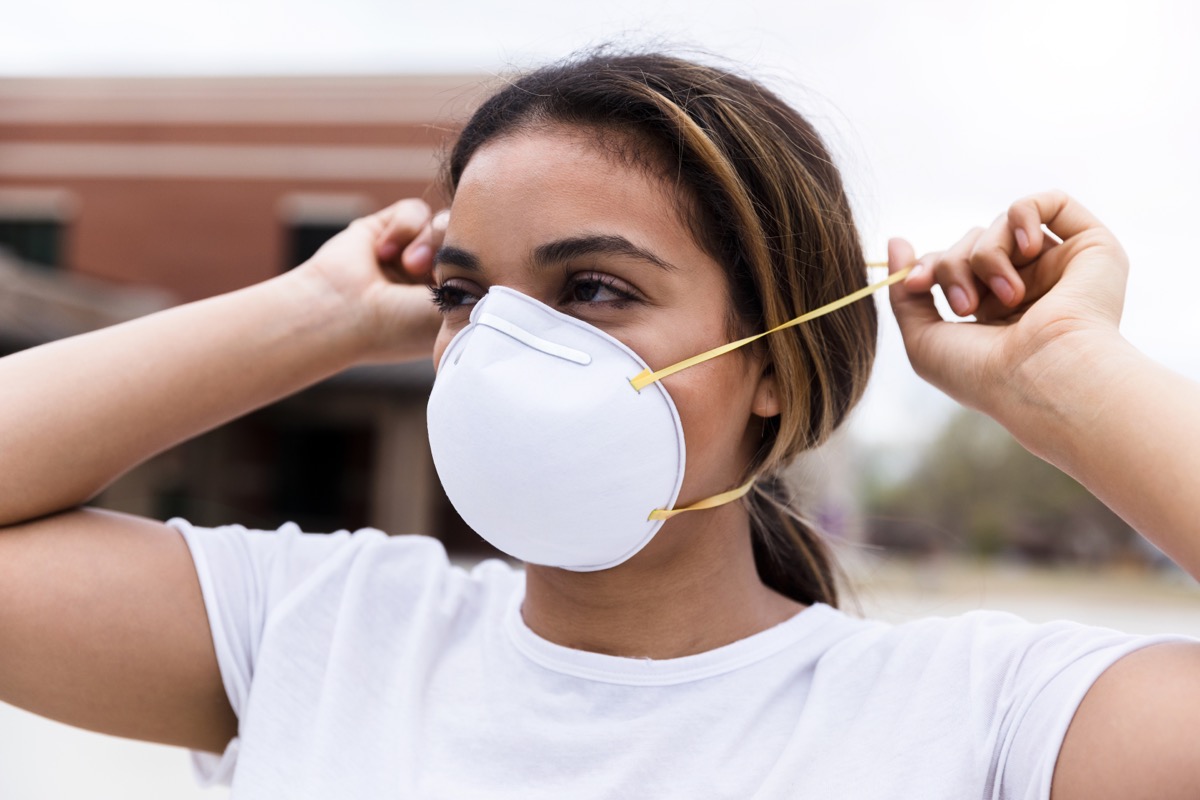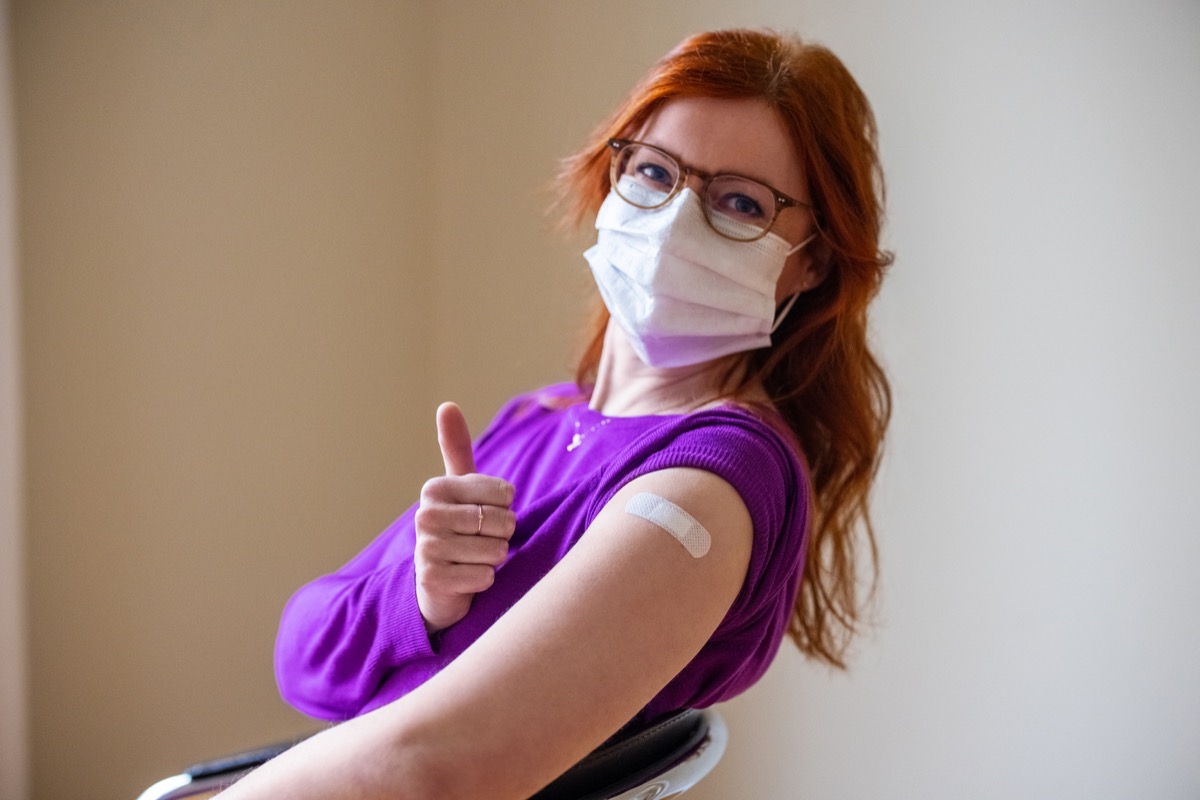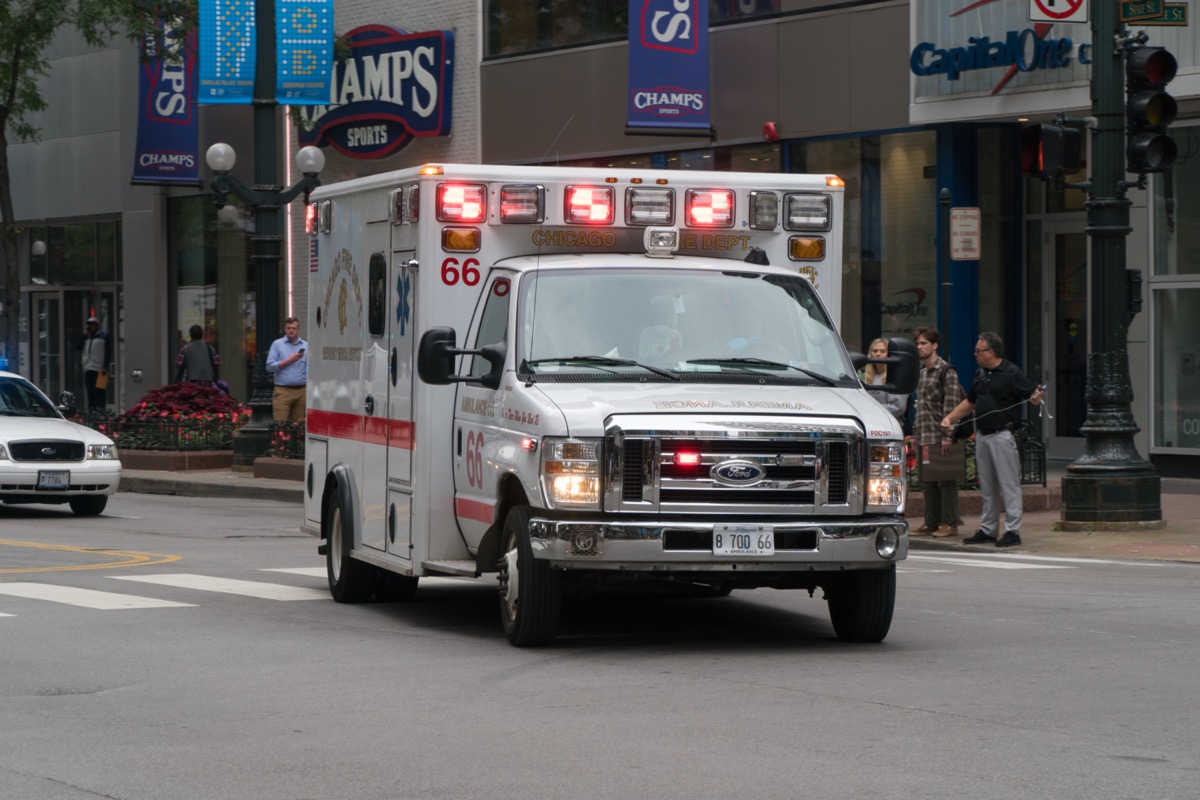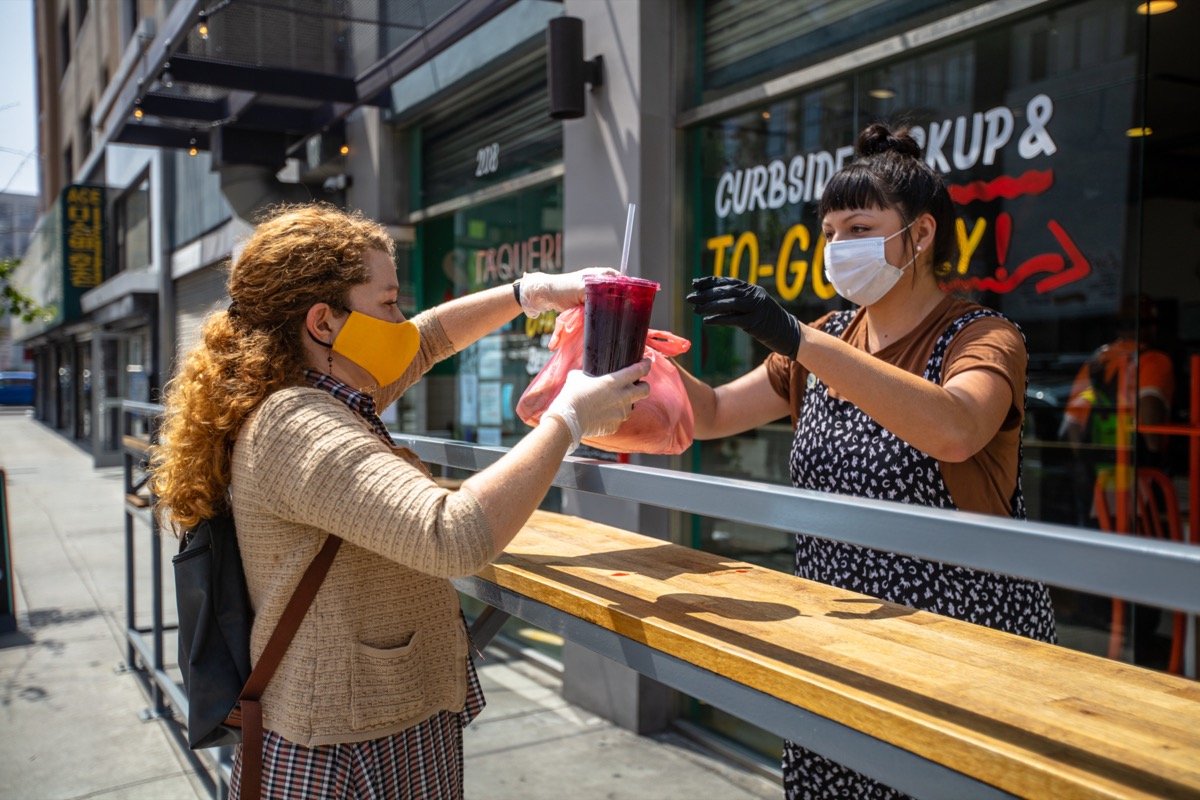Many states are dropping their mask mandates as COVID-19 cases continue to fall, but that doesn't mean the virus is no longer dangerous. The Delta and Omicron variants are still highly contagious and should be taken seriously. Here's how long COVID is contagious, and how to protect yourself and others from it. Read on—and to ensure your health and the health of others, don't miss these Sure Signs COVID is Hurting You—Even After a Negative Test.
COVID-19 is contagious for ten days after you first notice symptoms, and for people with more severe COVID-19, the contagious period can be 20 days or more. If you suspect you have COVID-19, get tested to make sure and stay home to protect others. "Even if it's a sore throat, no matter what it is, I've told my own staff this, it's what I do myself… if you are sick, even a little bit sick, stay home," says Chicago Department of Public Health Commissioner Dr. Allison Arwady. "More true than ever right now because sick, even a little bit sick, until proven otherwise with a test – that's COVID. That's how we treat it, that's how you should treat it."
RELATED: 5 Best Life Hacks That Slow Aging, Says Science

Mask mandates are being lifted, but wearing a mask in crowded indoor areas is still a highly effective way to protect yourself and other people from COVID-19—especially as you have no idea who is or isn't vaccinated, or might be contagious. "There's just been a lot of whiplash in terms of what people have been saying, because at the beginning of the pandemic, people were saying not to wear masks, and now all the health experts are saying that you should wear masks," says ob-gyn resident Pratistha Koirala, MD, Ph.D. "Medicine changes and it evolves. The more we learn about something, the better we're able to treat it."
RELATED: I'm a Doctor and Here's the #1 Sign You Have a Chronic Illness

Staying up to date with your COVID-19 vaccinations and boosters is the best way you can protect yourself from getting infected—but remember to continue using caution around large groups of people, especially indoors. "Because vaccines are not 100% effective, as the number of people who are fully vaccinated goes up, the number of vaccine breakthrough infections will also increase," the CDC advises. "However, the risk of infection remains much higher for unvaccinated than vaccinated people."
RELATED: Doing This One Thing Can Lead to Omicron

Long Covid is the term commonly used when symptoms related to COVID-19 continue for months—but there's also a chance someone might be infected with a new variant such as Omicron. If you don't feel well and aren't sure if what you're experiencing is Long Covid or a new infection, get tested and use precautions such as social distancing and mask-wearing to protect the people around you. "If you have long COVID symptoms, you should seek care," says AMA member Devang Sanghavi, MD. "As we have seen in a lot of these surveys and studies about post-COVID syndrome is that usually this condition doesn't come with just one symptom—there's a cluster of symptoms. Don't label it as post-COVID right away. You want to make sure that it's not something new, and then you obviously want to make sure that your symptoms are addressed, based on the severity."
RELATED: Proven Ways to Melt Visceral Fat, Say Experts

Exercise caution by keeping track of what the COVID-19 rates are in your community, and adapting your behavior to the risk—for example, if rates are surging, avoid crowded indoor areas even if you are wearing a mask. Relevant data can often be found on the local health department website or on CDC's COVID Data Tracker County View.
RELATED: This Common Habit Makes Your Diabetes Risk Soar

Follow the public health fundamentals and help end this pandemic, no matter where you live—get vaccinated or boosted ASAP; if you live in an area with low vaccination rates, wear an N95 face mask, don't travel, social distance, avoid large crowds, don't go indoors with people you're not sheltering with (especially in bars), practice good hand hygiene, And to live your healthiest life, don't miss this life-saving advice I'm a Doctor and Here's the #1 Sign You Have Cancer.
The post Here's How Long COVID is Contagious appeared first on Eat This Not That.
----------------
By: Ferozan Mast
Title: Here's How Long COVID is Contagious
Sourced From: www.eatthis.com/news-how-long-covid-is-contagious/
Published Date: Sun, 13 Feb 2022 12:15:32 +0000
Read More
Did you miss our previous article...
https://naturesmart.us/fitness/the-worst-condiments-you-should-always-leave-on-store-shelves
 HealthWellnessFitnessBeautyVideosPrivacy PolicyTerms And Conditions
HealthWellnessFitnessBeautyVideosPrivacy PolicyTerms And Conditions
